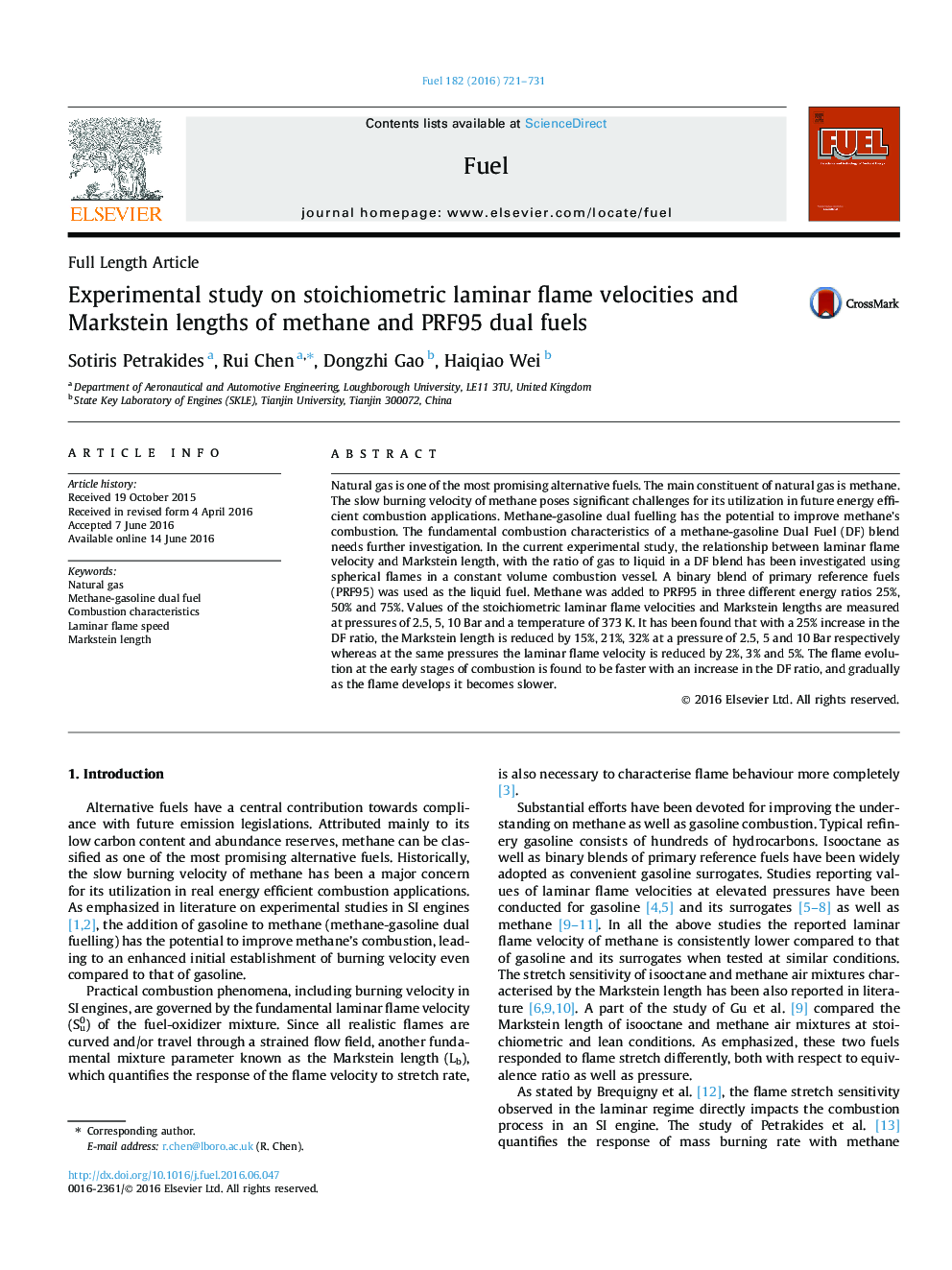| Article ID | Journal | Published Year | Pages | File Type |
|---|---|---|---|---|
| 6633554 | Fuel | 2016 | 11 Pages |
Abstract
Natural gas is one of the most promising alternative fuels. The main constituent of natural gas is methane. The slow burning velocity of methane poses significant challenges for its utilization in future energy efficient combustion applications. Methane-gasoline dual fuelling has the potential to improve methane's combustion. The fundamental combustion characteristics of a methane-gasoline Dual Fuel (DF) blend needs further investigation. In the current experimental study, the relationship between laminar flame velocity and Markstein length, with the ratio of gas to liquid in a DF blend has been investigated using spherical flames in a constant volume combustion vessel. A binary blend of primary reference fuels (PRF95) was used as the liquid fuel. Methane was added to PRF95 in three different energy ratios 25%, 50% and 75%. Values of the stoichiometric laminar flame velocities and Markstein lengths are measured at pressures of 2.5, 5, 10Â Bar and a temperature of 373Â K. It has been found that with a 25% increase in the DF ratio, the Markstein length is reduced by 15%, 21%, 32% at a pressure of 2.5, 5 and 10Â Bar respectively whereas at the same pressures the laminar flame velocity is reduced by 2%, 3% and 5%. The flame evolution at the early stages of combustion is found to be faster with an increase in the DF ratio, and gradually as the flame develops it becomes slower.
Related Topics
Physical Sciences and Engineering
Chemical Engineering
Chemical Engineering (General)
Authors
Sotiris Petrakides, Rui Chen, Dongzhi Gao, Haiqiao Wei,
